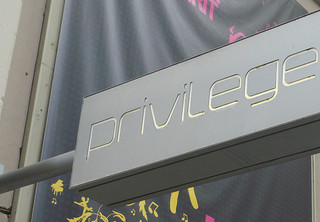 Stop me if you’ve heard this before. Someone says, “[X historically disenfranchised group] should stop complaining. They have way more privileges than I do.” When thus confronted, I have had to resist the visceral impulse to leap across a table to strangle the speaker, knowing that would be counter-productive and, I guess, felonious.
Stop me if you’ve heard this before. Someone says, “[X historically disenfranchised group] should stop complaining. They have way more privileges than I do.” When thus confronted, I have had to resist the visceral impulse to leap across a table to strangle the speaker, knowing that would be counter-productive and, I guess, felonious.
I do understand that on an individual level it’s very difficult to see systemic privilege if you are the one benefiting from it. It’s like fish not recognizing water. But it is also nearly impossible not to see it if you are suffering from lack of it. I’ve written about the issue of privilege on numerous occasions, but the recent conversation around paid versus unpaid internships presents an opportunity to understand privilege’s invisibility and to understand the issue on the systemic level in ways that may be less inflammatory than some others.
For years as an academic I supervised internships for students. In the beginning–the mid-1980’s–my college even insisted that internships be unpaid on the theory that the school did not want to give college credit for jobs. While that changed over time, the default assumption continued to be that internships would be unpaid. This increased the number of internship opportunities by orders of magnitude and valuable experience was gained by many, many students who would probably not have had them otherwise. For the record, the internships I supervised were almost exclusively with nonprofit organizations.
Yet students who had to work during the academic year and summer to pay bills–in other words, they did not have access to outside funds for tuition and living expenses–could not take advantage of these opportunities. The recent discussions of lack of diversity in arts organization’s staffs has identified this barrier to field experience as one significant factor. While I had been subliminally aware of the fact some students had trouble finding internships for this reason, its full impact had not been in the foreground of my thinking until the last few years.
No one set out to create career barriers for students who did not come from families of means. It was simply result of focusing on maximizing the number of opportunities. Nevertheless, unpaid internships were impossible for some students to undertake. This was a roadblock for them individually and made it more difficult for the field to benefit from their perspectives.
This is not an issue of race, clearly. It is one of economic status. But factors existing without an intent to discriminate can still have deeply negative impacts without being visible to others. That is the essence of systemic privilege.
Engage!
Doug
Photo:![]()
![]() Some rights reserved by Dr Stephen Dann
Some rights reserved by Dr Stephen Dann

I feel very appreciative that Mr. Borwick has pointed out the jaded reality behind the myth of internships. Internships were originally conceived as an important step for students to find out what they were capable of for the future. If the students do not come from a well-connected family background (you know, as most of us don’t), they rely on these internships to build connections, mentorships with potential employers, and hands-on working experience. Mr. Borwick is correct that, unfortunately, more and more internships are either unpaid or only offer minimum wage. As much as we hope to grab the opportunity to learn, it is simply hard to give the whole summer to work hard while being paid less than we could have earned flipping burgers. Eventually, the people coming from wealthy backgrounds can build up a solid network of references while the rest of us are hoping to pay our bills on time. There must be something we can do to fight against this systemic failure. I do not know where to start, but at least people should be aware of this problem.
Great article about a topic that is quite relevant and necessary as young adults enter into the work force the experience is treasured and necessary to get the “Dream” job they are striving for.
To eliminate those that require paid internships unfortunately narrows the talent pool and hiring entity will ultimately not have the best available resources to get the job done.
It can be a great privilege to be employed by a top company or well-known organization, paid or unpaid. However, for many it is imperative to get some pay for the time invested, sometimes “food on the table” is more critical for survival than a great experience during your months during an internship.
As an artist, I would love to suggest a program for those that do not pay for internships, provide a path for future incentives post the internship, for example a permanent job. Or a bonus performance/exhibition plan after the internship that rewards the intern with a small payment for the work completed. This can also be implemented for non-profits or even companies that have minimal cash flow on hand. Providing costs for travel to and from work or small lunch meal once a week would attract a broader base.
In conclusion, lower privileged young adults starting their career will suffer and can impact their career path. I hope that this topic will gain awareness and momentum so that companies will understand the benefits to them and the interns they are recruiting. Thanks for this posting, Mr.Borwick.